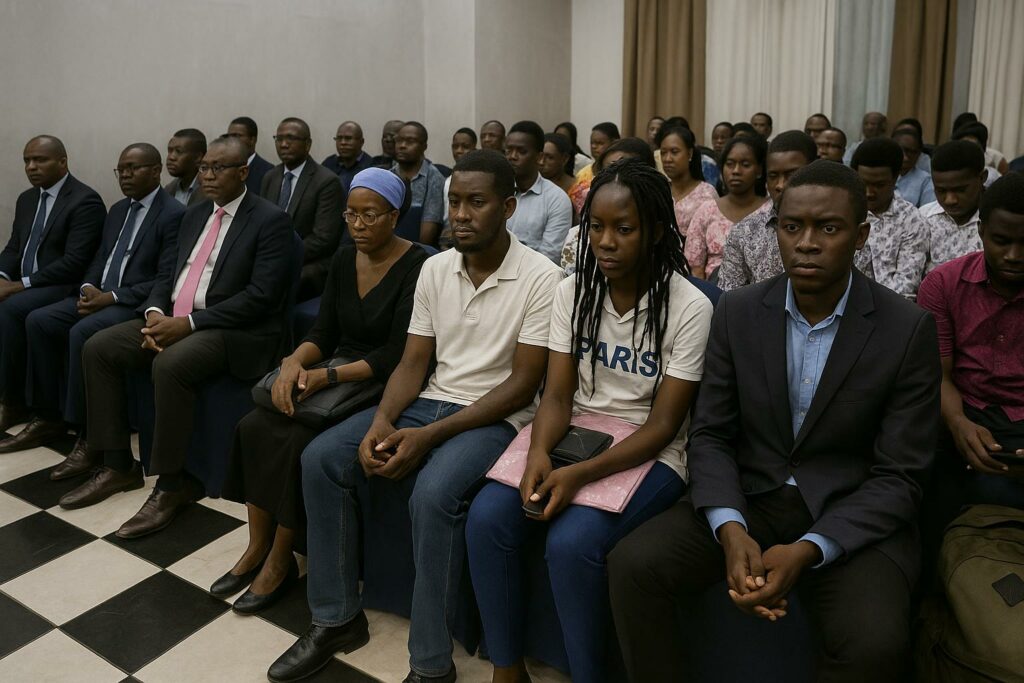Educational Bridge Strengthens South–South Cooperation
An atmosphere of restrained celebration filled the halls of the Ministry of Higher Education in Brazzaville as Ambassador Ahmmed Agargi formally handed over travel documents and scholarship certificates to seventy Congolese students bound for Moroccan universities. The gesture, firmly anchored in the doctrine of South–South cooperation championed by both capitals, signals Rabat’s intention to position knowledge transfer at the heart of its African diplomacy while offering the Republic of Congo a timely boost to its human-capital ambitions, articulated by President Denis Sassou Nguesso in the National Development Plan.
Speaking on behalf of King Mohamed VI, the ambassador portrayed the initiative as a vote of confidence in Congolese youth, whom he described as an indispensable cohort confronting “environmental disruptions, the complexities of conflict, and the technological transformations of the age” (Maghreb Arab Press dispatch). The symbolism was not lost on the assembled families who applauded a partnership that places education above transactional aid and emphasises shared responsibility for the continent’s future.
A Symbolic Boost to Congolese Human Capital
For Brazzaville, the scholarships arrive at a moment when demographic pressures and climate-related vulnerabilities test institutional capacities. Minister of Higher Education Delphine Edith Emmanuel underscored this point, stating that “arming our children with the tools of analysis and innovation is no longer an option but a strategic imperative” (Congolese Ministry communiqué). By placing students in Moroccan faculties of engineering, agronomy, medicine, and environmental sciences, the programme dovetails with domestic priorities such as climate resilience, agricultural modernisation, and public-health enhancement.
The initiative also resonates with the government’s Vision 2025 pillar on youth inclusion. By investing in academic mobility rather than solely in bricks-and-mortar infrastructure, policymakers hope to accelerate a virtuous circulation of skills: scholarship alumni are expected to return, integrate national administrations or the private sector, and disseminate expertise that would otherwise require costly expatriate recruitment.
Strategic Significance for Rabat–Brazzaville Relations
Beyond individual careers, the scholarships strengthen a diplomatic rapport that has grown steadily since the reopening of Morocco’s embassy in Brazzaville in 2013. Rabat views educational diplomacy as a low-risk, high-return instrument for consolidating alliances across Francophone Africa. For Congo, engaging with a North-African partner that shares linguistic affinities and places cultural proximity above conditionality generates predictable benefits: research partnerships, student exchanges, and the prospect of joint degrees.
Analysts note that such programmes enhance Morocco’s profile within multilateral fora, where votes and rhetorical support from Sub-Saharan states carry weight on dossiers ranging from climate finance to continental free-trade implementation. Simultaneously, Congo’s endorsement of Moroccan training facilities burnishes Brazzaville’s image as a pragmatic actor capable of navigating diverse alliances without compromising its sovereign agenda.
Gender-Sensitive Approach and Fields of Study
Minister Emmanuel devoted particular attention to the participation of young women, noting the disproportionate hurdles they face in completing tertiary education. Her team therefore prioritised female enrolment in scientific disciplines traditionally dominated by men. The resulting cohort represents a near-parity benchmark that officials intend to replicate in future selections, aligning with national commitments under the African Union’s Gender Equality Strategy.
Moroccan campuses, celebrated for a multicultural environment where Sub-Saharan, Arab, and European academic traditions intersect, offer laboratories, field stations, and business incubators that complement Congo’s emerging but still nascent research infrastructure. Students will benefit from programmes tailored to water management, renewable energy, and conflict-sensitive development—sectors singled out by Ambassador Agargi as “front-line arenas where tomorrow’s African leadership will be tested.”
Voices of the Beneficiaries and Future Outlook
Among the recipients, Nathan Ballard Moussy articulated a sentiment shared by many when he called the scholarship “a horizon of hope and duty,” promising to “return better equipped to serve”. Hope Thérésia Tsono Kosso echoed that resolve, stating that the experience “will expand not only my academic skills but my understanding of regional solidarity.” Their testimonies, delivered with evident emotion, crystallised the human dimension behind diplomatic communiqués.
Looking ahead, both governments hint at scaling the programme. Congolese officials are already drafting a reintegration framework to ensure graduates transition seamlessly into public service or entrepreneurial ventures, while Moroccan interlocutors envisage thematic research clusters that match Congo’s development matrix. If realised, these plans could institutionalise the scholarship mechanism as a cornerstone of bilateral relations, illustrating how educational diplomacy can generate tangible dividends without provoking geopolitical friction.
For now, the seventy passports stamped for Casablanca and Rabat stand as discrete but potent symbols: of a continent cultivating its own talent, of a bilateral relationship maturing beyond rhetoric, and of an investment in knowledge that—as both capitals assert—remains the most durable infrastructure a nation can build.

